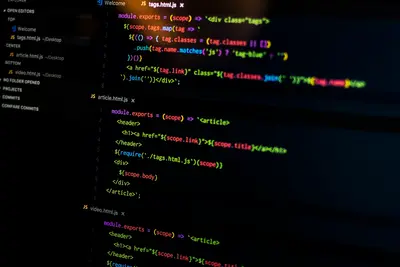⏰ Scheduling Tasks with Cron and Systemd Timers in AlmaLinux: Easy Guide
Want your computer to do things automatically? Like backing up files every night or cleaning up logs weekly? 🎯 Let’s learn how to schedule tasks in AlmaLinux! We’ll use two powerful tools: cron (the classic way) and systemd timers (the modern way). Don’t worry, it’s fun and easy! 😊
🤔 Why is Task Scheduling Important?
Automating tasks saves you time and ensures important jobs never get forgotten! Here’s why it’s awesome:
- 🤖 Automation Magic - Computer works while you sleep
- 💾 Regular Backups - Never lose important files
- 🧹 Automatic Cleanup - Keep system tidy without thinking
- 📊 Reports Generation - Get daily/weekly summaries
- 🔄 System Updates - Stay secure automatically
- ⏰ Never Forget - Computer remembers for you!
🎯 What You Need
Before we start automating, check you have:
- ✅ AlmaLinux system running
- ✅ Terminal access
- ✅ Basic command knowledge
- ✅ Text editor (nano or vim)
- ✅ 10 minutes to learn something cool!
📝 Step 1: Understanding Cron Basics
Cron is like an alarm clock for commands! ⏰
Check if Cron is Running
# Check cron service status
systemctl status crond
# Start cron if not running
sudo systemctl start crond
# Make sure it starts on boot
sudo systemctl enable crondCron Time Format
# The magic formula:
# * * * * * command
# │ │ │ │ │
# │ │ │ │ └── Day of week (0-7, Sunday = 0 or 7)
# │ │ │ └──── Month (1-12)
# │ │ └────── Day of month (1-31)
# │ └──────── Hour (0-23)
# └────────── Minute (0-59)Example times: 📖
0 3 * * *= Every day at 3:00 AM30 14 * * 1= Every Monday at 2:30 PM*/5 * * * *= Every 5 minutes0 0 1 * *= First day of every month at midnight
🔧 Step 2: Creating Your First Cron Job
Let’s schedule something simple! 🎉
Open Your Crontab
# Edit your personal cron jobs
crontab -e
# Or edit system-wide cron jobs (needs sudo)
sudo crontab -eAdd a Simple Job
# Add this line to run a backup every day at 2 AM
0 2 * * * tar -czf /home/backup/daily-$(date +\%Y\%m\%d).tar.gz /home/myfiles
# Or this to clear temp files every Sunday
0 0 * * 0 rm -rf /tmp/myapp-temp/*
# Or check disk space every hour and save to log
0 * * * * df -h > /home/logs/disk-usage.logSave and Exit
# In nano: Ctrl+X, then Y, then Enter
# In vim: :wqPro tip: 💡 Cron sends output to your email. Add > /dev/null 2>&1 to silence it!
🌟 Step 3: Using Systemd Timers (Modern Way)
Systemd timers are the new cool way to schedule tasks! 🚀
Create a Service File
# Create service file
sudo nano /etc/systemd/system/my-backup.serviceAdd this content:
[Unit]
Description=My Daily Backup Service
After=network.target
[Service]
Type=oneshot
ExecStart=/usr/local/bin/backup-script.sh
User=myuser
[Install]
WantedBy=multi-user.targetCreate a Timer File
# Create timer file
sudo nano /etc/systemd/system/my-backup.timerAdd this content:
[Unit]
Description=Run backup daily at 2 AM
Requires=my-backup.service
[Timer]
OnCalendar=daily
AccuracySec=1h
Persistent=true
[Install]
WantedBy=timers.targetEnable and Start Timer
# Reload systemd
sudo systemctl daemon-reload
# Enable timer
sudo systemctl enable my-backup.timer
# Start timer
sudo systemctl start my-backup.timer
# Check status
systemctl status my-backup.timer✅ Step 4: Verify Your Scheduled Tasks
Let’s make sure everything works! 🔍
Check Cron Jobs
# List your cron jobs
crontab -l
# List all users' cron jobs (as root)
sudo crontab -u username -l
# Check cron log
sudo tail -f /var/log/cronCheck Systemd Timers
# List all timers
systemctl list-timers
# Check specific timer
systemctl status my-backup.timer
# See when it will run next
systemctl list-timers my-backup.timerGood output looks like: ✨
NEXT LEFT
Mon 2025-08-20 02:00:00 EDT 5h 42min🎮 Quick Examples
Example 1: Daily System Update Check 🔄
# Add to crontab
crontab -e
# Check for updates daily at 6 AM
0 6 * * * /usr/bin/dnf check-update > /home/logs/updates.log 2>&1
# Save and exit
# Verify
crontab -lExample 2: Weekly Cleanup Script 🧹
# Create cleanup script
nano ~/cleanup.sh
#!/bin/bash
# Clean package cache
sudo dnf clean all
# Clean logs older than 7 days
find /var/log -name "*.log" -mtime +7 -delete
# Empty trash
rm -rf ~/.local/share/Trash/*
# Make executable
chmod +x ~/cleanup.sh
# Schedule for Sunday midnight
crontab -e
0 0 * * 0 /home/user/cleanup.shExample 3: Hourly Website Check 🌐
# Create check script
nano ~/check-website.sh
#!/bin/bash
if curl -s https://mysite.com > /dev/null; then
echo "$(date): Site is UP" >> ~/site-status.log
else
echo "$(date): Site is DOWN!" >> ~/site-status.log
# Send alert email
echo "Website is down!" | mail -s "Alert" [email protected]
fi
# Schedule every hour
crontab -e
0 * * * * /home/user/check-website.sh🚨 Fix Common Problems
Problem 1: Cron job not running ❌
Symptoms:
- No output or logs
- Task doesn’t execute
- No error messages
Try this:
# Check cron service
sudo systemctl status crond
sudo systemctl restart crond
# Check cron log for errors
sudo grep CRON /var/log/cron
# Use full paths in crontab
/usr/bin/python3 /home/user/script.pyProblem 2: Permission denied errors ❌
Try this:
# Make script executable
chmod +x /path/to/script.sh
# Check script ownership
ls -l /path/to/script.sh
# Run with proper user
sudo crontab -u correctuser -eProblem 3: Timer not triggering ❌
Check these things:
# Reload systemd
sudo systemctl daemon-reload
# Check timer syntax
systemctl status my-timer.timer
# View timer logs
journalctl -u my-timer.timer📋 Simple Commands Summary
| Task | Command |
|---|---|
| 👀 View cron jobs | crontab -l |
| ✏️ Edit cron jobs | crontab -e |
| 📊 List all timers | systemctl list-timers |
| 🚀 Start timer | sudo systemctl start timer-name.timer |
| 🛑 Stop timer | sudo systemctl stop timer-name.timer |
| 📝 Check cron log | sudo tail /var/log/cron |
| ✅ Timer status | systemctl status timer-name.timer |
💡 Tips for Success
- Test First 🧪 - Run commands manually before scheduling
- Use Full Paths 📁 - Always use
/usr/bin/commandnot justcommand - Log Output 📝 - Save output to files for debugging
- Start Simple 🎯 - Begin with easy schedules like daily
- Check Logs 🔍 - Always check logs if something doesn’t work
🏆 What You Learned
Awesome job! Now you can:
- ✅ Create cron jobs for regular tasks
- ✅ Use systemd timers for modern scheduling
- ✅ Schedule daily, weekly, and custom times
- ✅ Debug scheduling problems
- ✅ Automate backups and cleanup
- ✅ Monitor scheduled tasks
🎯 Why This Matters
Now your AlmaLinux system:
- 🤖 Works automatically without you
- 💾 Never misses important backups
- 🧹 Stays clean and organized
- 📊 Generates reports on schedule
- 🔒 Stays updated and secure
- ⏰ Runs like clockwork!
Remember: Automation is your friend! Let the computer do the repetitive work while you focus on fun stuff! ⭐
Set it and forget it! Your AlmaLinux system is now on autopilot! 🚀✨




